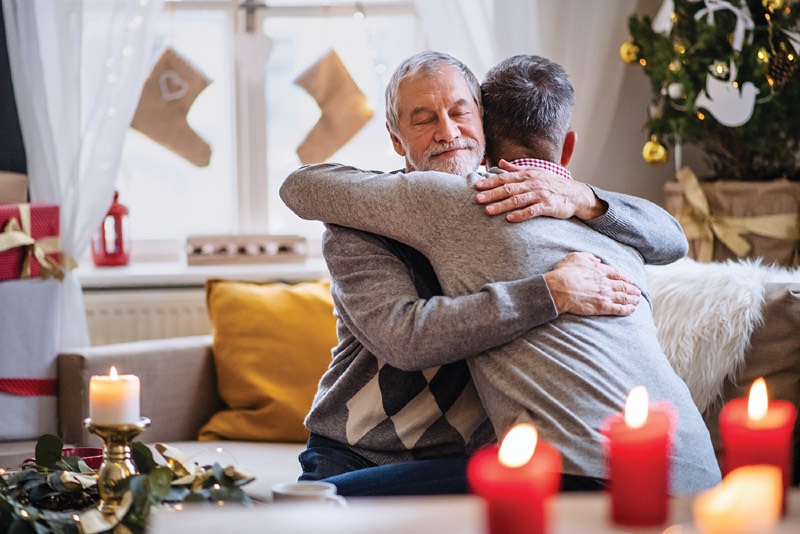By Tana Villanueva, General Manager for VITAS® Healthcare
Facing the holidays after the death of a loved one is difficult, especially the first few years. The bereavement experts at VITAS® Healthcare offer suggestions to help you and your family cope, enjoy time together, and honor a deceased loved one during the holidays.
1. Ask each family member for their thoughts and preferences about participating in holiday preparations and traditions.
A family meeting will help you discuss the role your loved one played in your holiday traditions. Did Mom always bring her signature pie? Did Grandad always say a special prayer? Maybe you and your spouse always put up the tree together. By talking about what you’ll miss most about your loved one’s absence, you and your family are taking the first step to cope with your grief.
2. Review all holiday-associated activities. Consider what to keep and what to change this year.
If you and your family decide to continue with holiday family traditions, maybe someone else can fulfill the role of your loved one. Replicating Mom’s signature pie can be a comfort to everyone and a great way to honor her memory. Each member of the family should do only what they feel most capable of handling, and everyone should honor the choices made by the entire family.
No one says you have to do things the way you have in the past. If you usually went to the same relative’s house for holiday dinner, this year you may decide to go someplace different or stay at home. It’s okay if you don’t feel like decorating or putting up the tree. If you do, invite family and friends to help. This will lighten the mood and add a festive feeling. It’s okay if you don’t feel like attending a religious service. If you do, invite someone to go with you and share a special time together.
Feelings of grief ebb and flow. You may feel upbeat and energetic one moment and overwhelmingly sad and tired the next. It is a time to be kind to yourself and to help others understand how you feel and what you need.
3. Decide how to include the memory of your loved one in holiday events.
A chair may be empty, but your loved one will be present in your mind and heart. You can include them in family gatherings by lighting a special candle when you gather or by placing notes in a box to read and share later. Look through photo albums and tell stories about your loved one who is gone. This can make you feel connected to each other and to the loved one who died.
4. Respond to holiday invitations.
Holidays are full of parties and get-togethers. You should plan to be with people you enjoy, even if just for a few moments. To make going easier, ask a friend to accompany you, and stay only as long as you want. And allow yourself to decline invitations you don’t want to accept.
5. Realize that your fear of the holidays may be worse than the reality.
The fear of going through the holiday season without a loved one may be worse than the reality as you surround yourself with family, friends, and others who understand what you’re going through. Allow yourself to enjoy “golden moments” when you can see the joy of the season. Your loved one would want that for you.
VITAS offers remote bereavement support groups, free of charge. Led by VITAS bereavement specialists, these support groups provide information and guidance to those experiencing grief and loss. For more information, call 309.691.2381 or visit VITAS.com/grief.
For more informative and inspirational articles visit 50 Plus News and Views Peoria online.










